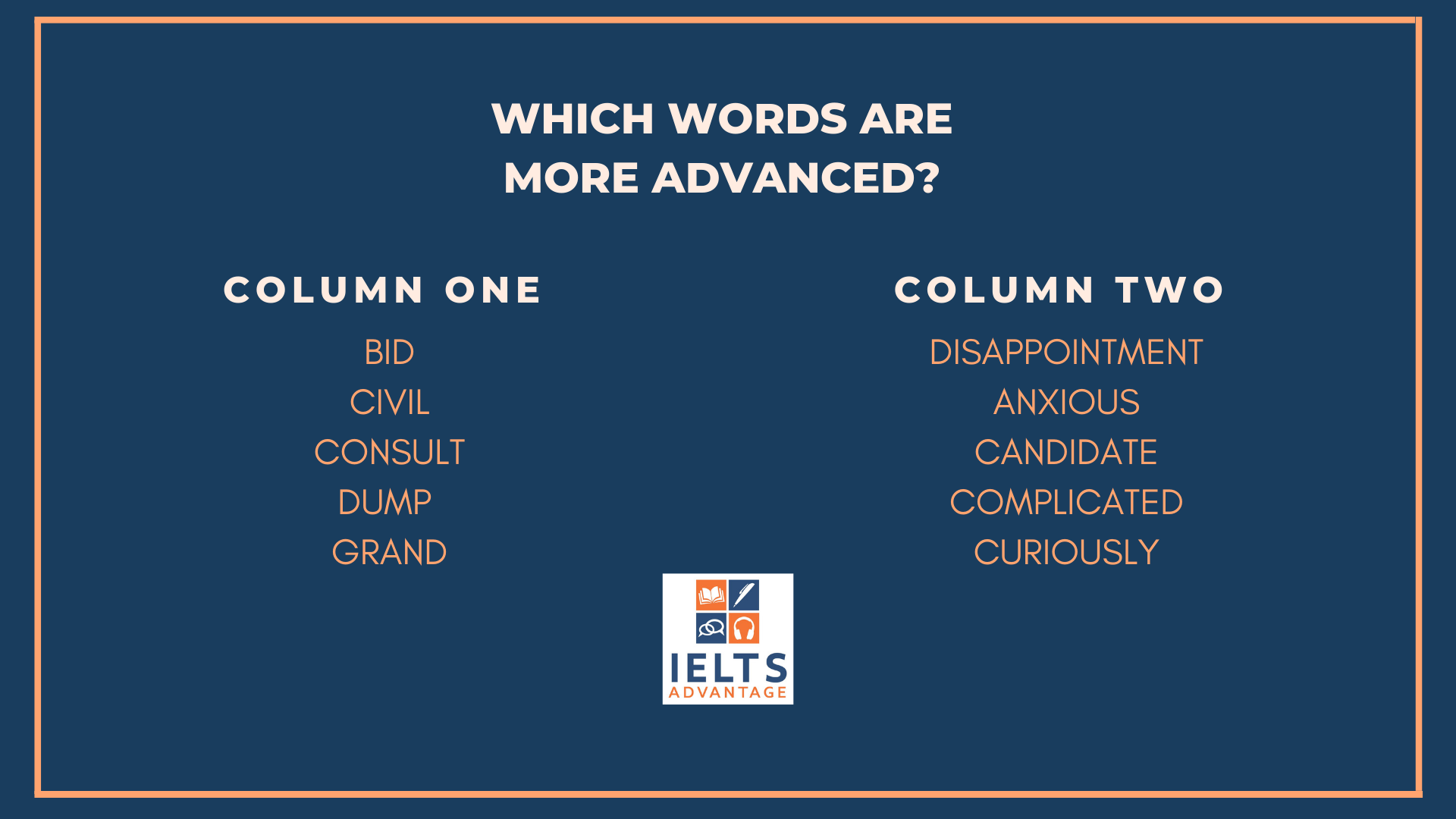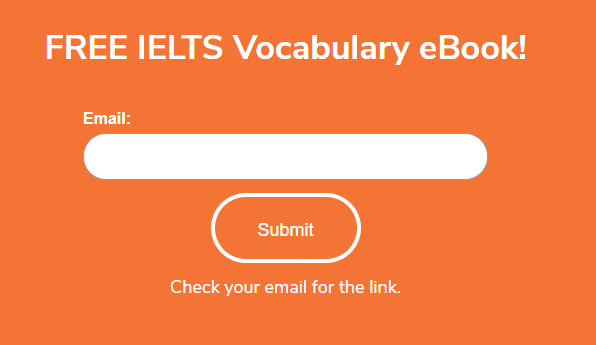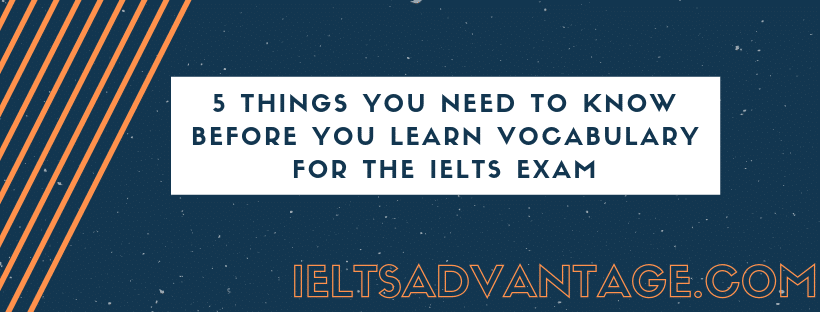A strong vocabulary is a vital tool for anyone that needs to improve their IELTS skills.
In this week’s blog post, I’ll highlight 5 things you must know before you begin learning vocabulary for the IELTS exam.
Before we begin, I need to address a question that our team receives every day through emails, Facebook, Instagram and YouTube comments – is vocabulary important?
The short answer is yes. A thousand times – yes!
If you read the IELTS assessment criteria, you will see that vocabulary accounts for 25% of your total score for IELTS writing and speaking. (If you didn’t know this already, you should read this article). Obviously, your ability to communicate with the examiner is vital in these sections of the IELTS exam. If you don’t have the vocabulary required to express an understanding of a given topic, your ability to communicate will be greatly limited – as will your final score.
Additionally, a strong vocabulary is your most powerful weapon when taking the listening and reading tests. If you have invested the time into expanding your vocabulary, you’ll have the ability to successfully understand and process the information that is given to you.
This means that a limited vocabulary can negatively affect every single section of the IELTS exam…
So, yes. It’s important.
1. Learning long lists of words won’t improve your score
The IELTS exam isn’t a memorisation test, it’s a language exam. You can’t improve your language skills by learning long lists of words.
Don’t believe me?
Imagine that you needed to improve your running skills. Do you think watching videos of people running would help you?
Or if you needed to pass your driving test, would you benefit from watching videos of people driving?
Of course not!
The only way to improve a skill is by practising it. In terms of vocabulary, this means learning a word within its context and attempting to reproduce it.
Yes, you will make mistakes.
However, these mistakes will teach you exactly how to improve next time. They will also teach you how to recognise the correct spelling, pronunciation, use and collocations of the words you have learned.
2. Expanding your vocabulary takes time
One of our key values as a company at IELTS Advantage is the belief that “a process is better than a journey”. Just like a company’s success, you can’t achieve a strong vocabulary overnight – you need to be able to walk before you can run.
It’s important that you don’t try to rush this part of your IELTS preparation. If you do, you’ll increase your chances of making mistakes, completely undermining all of your hard work.
Remember: You will never be marked down for not using a specific word in the writing test. You WILL be marked down if you misspell a word that you didn’t learn properly in the first place.

3. Band 7 vocabulary ISN’T what you think
Band 7 vocabulary is simply an advanced level of vocabulary. That’s it.
Many IELTS students (and poor IELTS teachers) assume that advanced vocabulary must consist of long or complicated words. In reality – these words aren’t necessarily ‘high level’, they’re just difficult to spell!
For example, take a look at the lists of words below, column one and column two. Which do you think contains the more advanced vocabulary?

According to the Cambridge English dictionary, the words listed on the left are higher level. Even though the words on the left are shorter and easier to spell, they are also significantly less common than the words on the right.
Watch the following section of Chris’ video lesson for an in-depth understanding of the key you can use to differentiate between advanced and low-level vocabulary:
4. There is no such thing as ‘golden words’ that will boost your score
A number of IELTS students believe that they can learn a select number of ‘diamond’ words or ‘Band 9’ words to increase their chances of getting a high score.
Unfortunately, it just isn’t that easy. Trying to disguise poor writing or speaking skills by using an “impressive” word won’t work with an experienced IELTS examiner.
Firstly, a single piece of advanced vocabulary will NEVER increase the overall quality of your work. You can put lipstick on a pig, but it’s still a pig.
Secondly, you should never make it your mission to impress the examiner. Your main priority should be to communicate clearly and effectively. Therefore, you need to find a balance between accuracy, appropriacy and range. In my experience, the best way of doing this is by learning vocabulary organically.
Read the fifth and final step you must take if you wish to learn vocabulary organically.
5. You must take action
Every single IELTS student reading this is an individual and should be treated as such. It would be arrogant (and dishonest) of me to say ‘follow this method and your problems will disappear!’ because everyone learns differently.
What I can do is tell you what works for our most successful students. Or better yet, they can tell you themselves!
If you look at all of the different pupils that scored a Band 7, 8 or 9 on our VIP Academy Reviews or Success Stories, you’ll notice that they all have one very important thing in common:
They all took action against their weaknesses.
Not one of these students hoped or prayed that their scores would improve – they made it happen through hard work, dedication and a positive mindset. If you don’t do anything to fix your problems, they won’t go away.
And if IELTS vocabulary is your biggest problem, you need to tackle it until it becomes a strength.
If you need help with this, I would recommend downloading our IELTS Vocabulary Improvement Plan.
To gain access to this free e-Book, you should scroll to the very bottom of this webpage 👇👇
And enter your email address in the following form:

We will then send our Vocabulary Improvement Plan to your email address!
Let me know what you think in the comments.
***

